
I’ve had asthma my entire life, I’m 48. I’ve also been taking Advair my entire adult life. When I was younger, Ventolin was sufficient but as I grew older, my doctors added Advair. I was on Advair 230mcg/21mcg for a while but about 7 years ago, I wanted to get steroids out of my life and started working on my diet, supplements and exercise, its been a long road, to say the least. So if you want to work on your asthma, this isn’t a short cut but perhaps if I had found redox molecules (via ASEA) earlier, maybe it would’ve been. Anyway, in the 7 years I managed to lower my dose of Advair to the lowest, at 45 mcg/21 mcg. In the last couple of months, I’ve stopped taking Advair altogether.
Five Steps to being Steroid-Free (Inhaler-Free)
My goal, seven years ago, was to remove steroids as my asthma medication. I did not want to be stuck with taking steroids for the rest of my life. Its important to remember that asthma is triggered by allergies — its important to know what your triggers are and how to remove them from your daily life.
Anyway, first I want to mention that you cannot lower your medication without the help and support of your doctor. My Holistic Dr. was with me every step of the way and would take blood tests and breathing test in all my visits to make sure that I wasn’t putting myself in danger. If you work with a regular doctor that will not work with you to remove steroids in your life, the first step for you is to find a doctor that will help you achieve that goal. I hope that is clear. Let’s not be reckless with our choices. When you find a doctor, do an allergy test — find out what you are allergic to and try your best to stay far away from your triggers as possible.
The second step is this: work on your diet. I had to remove regular wheat from my diet but I’ve been able to find better wheat, like whole grains and sprouted wheat that satisfy my cravings. The hardest part is ordering pizza… make sure to order the gluten free version! But you also have to remove dairy from your diet so when you order pizza, order the gluten free and dairy free version. Obviously, its not as good but it satisfies the itch. Here is a rundown of the things that I’ve removed from my diet.
- dairy (milk and cheese), you can still have butter because its low in casein
- wheat (find whole grain, sprouted wheat)
- sugar (raw, unfiltered honey became my alternative)
- processed foods (stopped eating junk foods that are inflammatory)
- minimized eating rice, because that turns to glucose. I now eat whole-grain rice.
…and thats it. I’ve also stopped eating meat (beef, pork and chicken) for personal reasons but I don’t believe it has asthma benefits. With regards to your diet — stick to one that you love thats full of antioxidants, fiber, protein and complex carbs, I know that seems hard to do without dairy, wheat etc. but you will be surprised with the food that you discover along your journey to being asthma free.
The third step is to exercise daily. I walk with my dog for 30 minutes in the morning and 30 minutes in the afternoon. Lately, I have also been running — with ASEA, there is an added boost of energy and it makes you want to run. Anyway, I now run 5Ks with my son regularly but it took me almost a year of taking ASEA to start running, so don’t rush yourself. Also, if running isn’t your sport, don’t worry about it — find an activity that you love doing.
The fourth step is to reach for supplements. As we age, our bodies just need that added nutrition that food is incapable of giving us. Below are the supplements that I highly recommend for asthma.
The fifth step is to start taking ASEA daily. I started with one cup in the morning and one cup in the evening. Then after a week I started 2 cups in the morning and evening — this was my dose for over a year. I recently upped my dosage to 3 cups in the morning and evening and this is when my asthma totally disappeared. I stopped needing Advair daily.
Supplements to support Asthma
Here are the supplements that I take to help relieve my asthma.
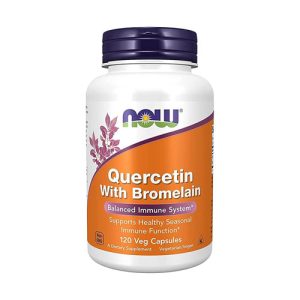 Quercetin with Bromelain — I will never stop talking about the benefits of quercetin for asthma and allergies. Quertin is the natural alternative to Zyrtec and it works as well without the side-effects. Now Quercetin Supplements are what I take daily — well most days, sometimes I forget but I normally take the recommended two capsules per day. Below are studies that support Quercetin’s ability to deal with allergic diseases (asthma is an allergic disease) Here is the link to buy Quercetin.
Quercetin with Bromelain — I will never stop talking about the benefits of quercetin for asthma and allergies. Quertin is the natural alternative to Zyrtec and it works as well without the side-effects. Now Quercetin Supplements are what I take daily — well most days, sometimes I forget but I normally take the recommended two capsules per day. Below are studies that support Quercetin’s ability to deal with allergic diseases (asthma is an allergic disease) Here is the link to buy Quercetin.
Abstract from study: Quercetin with the potential effect on allergic diseases
Quercetin is a naturally occurring polyphenol flavonoid which is rich in antioxidants. It has anti-allergic functions that are known for inhibiting histamine production and pro-inflammatory mediators. Quercetin can regulate the Th1/Th2 stability, and decrease the antigen-specific IgE antibody releasing by B cells. Quercetin has a main role in anti-inflammatory and immunomodulatory function which makes it proper for the management of different diseases. Allergic diseases are a big concern and have high health care costs. In addition, the use of current therapies such as ß2-agonists and corticosteroids has been limited for long term use due to their numerous side effects. Since the effect of quercetin on allergic diseases has been widely studied, in the current article, we review the effect of quercetin on allergic diseases, such as allergic asthma, allergic rhinitis (AR), and atopic dermatitis (AD).
Abstract from study: Flavonoids and Asthma
Asthma is a chronic disease, characterized by airway inflammation, airflow limitation, hyper-reactivity and airway remodeling. It is believed that asthma is caused by the interaction between genetic and environmental factors. The prevalence of allergic diseases, including asthma, has increased worldwide during the past two decades. Although the precise reasons that have caused this increase remain unknown, dietary change is thought to be one of the environmental factors. Flavonoids, which are polyphenolic plant secondary metabolites ubiquitously present in vegetables, fruits and beverages, possess antioxidant and anti-allergic traits, as well as immune-modulating activities. Flavonoids are powerful antioxidants and anti-allergic nutrients that inhibit the release of chemical mediators, synthesis of Th2 type cytokines, such as interleukin (IL)-4 and IL-13, and CD40 ligand expression by high-affinity immunoglobulin E (IgE) receptor-expressing cells, such as mast cells and basophils. They also inhibit IL-4-induced signal transduction and affect the differentiation of naïve CD4+ T cells into effector T-cells through their inhibitory effect on the activation of the aryl hydrocarbon receptor. Various studies of flavonoids in asthmatic animal models have demonstrated their beneficial effects. The results of several epidemiological studies suggest that an increase in flavonoid intake is beneficial for asthma. Moreover, clinical trials of flavonoids have shown their ameliorative effects on symptoms related to asthma. However, these human studies are currently limited; further validation is required to clarify whether an appropriate intake of flavonoids may constitute dietary treatment and for part of a preventive strategy for asthma.
Abstract from study: Quercetin and its anti-allergic immune response
Quercetin is the great representative of polyphenols, flavonoids subgroup, flavonols. Its main natural sources in foods are vegetables such as onions, the most studied quercetin containing foods, and broccoli; fruits (apples, berry crops, and grapes); some herbs; tea; and wine. Quercetin is known for its antioxidant activity in radical scavenging and anti-allergic properties characterized by stimulation of immune system, antiviral activity, inhibition of histamine release, decrease in pro-inflammatory cytokines, leukotrienes creation, and suppresses interleukin IL-4 production. It can improve the Th1/Th2 balance, and restrain antigen-specific IgE antibody formation. It is also effective in the inhibition of enzymes such as lipoxygenase, eosinophil and peroxidase and the suppression of inflammatory mediators. All mentioned mechanisms of action contribute to the anti-inflammatory and immunomodulating properties of quercetin that can be effectively utilized in treatment of late-phase, and late-late-phase bronchial asthma responses, allergic rhinitis and restricted peanut-induced anaphylactic reactions. Plant extract of quercetin is the main ingredient of many potential anti-allergic drugs, supplements and enriched products, which is more competent in inhibiting of IL-8 than cromolyn (anti-allergic drug disodium cromoglycate) and suppresses IL-6 and cytosolic calcium level increase.
 ASEA — Its so hard to believe that ASEA hasn’t been discovered by more people, but I understand that the lack of science behind it is what is holding back a lot Users from trying it. Although, there are new studies about redox. ASEA is redox, cellular repair so what it does is repair your cells. I’ve had asthma my entire adult life and I can tell you that my asthma (tightening of my chest and difficulty breathing) has been minimized with ASEA.
ASEA — Its so hard to believe that ASEA hasn’t been discovered by more people, but I understand that the lack of science behind it is what is holding back a lot Users from trying it. Although, there are new studies about redox. ASEA is redox, cellular repair so what it does is repair your cells. I’ve had asthma my entire adult life and I can tell you that my asthma (tightening of my chest and difficulty breathing) has been minimized with ASEA.
Please note a few important details:
- I’ve been taking ASEA for over a year
- I now take 8 oz of ASEA per day.
- I take 4 oz in the morning (first thing on an empty stomach)
- I take 4 oz in the evening (last thing on an empty stomach)
- I drink about 3 to 4 liters of water per day
- I walk about 30 minutes day, taking deep breaths
- I try to eat a well-balanced diet as much as possible with occasional treats
Abstract from Redox Study: Redox control of Asthma: Molecular mechanisms and therapeutic opportunities
An imbalance in reducing and oxidizing (redox) systems favoring a more oxidative environment is present in asthma and linked to the pathophysiology of the defining symptoms and signs including airflow limitation, hyper-reactivity, and airway remodeling. High levels of hydrogen peroxide, nitric oxide (•NO), and 15-F2t-isoprostane in exhaled breath, and excessive oxidative protein products in lung epithelial lining fluid, peripheral blood, and urine provide abundant evidence for pathologic oxidizing processes in asthma. Parallel studies document loss of reducing potential by nonenzymatic and enzymatic antioxidants. The essential first line antioxidant enzymes superoxide dismutases (SOD) and catalase are reduced in asthma as compared to healthy individuals, with lowest levels in those patients with the most severe asthma. Loss of SOD and catalase activity is related to oxidative modifications of the enzymes, while other antioxidant gene polymorphisms are linked to susceptibility to develop asthma. Monitoring of exhaled •NO has entered clinical practice because it is useful to optimize asthma care, and a wide array of other biochemical oxidative and nitrative biomarkers are currently being evaluated for asthma monitoring and phenotyping. Novel therapeutic strategies that target correction of redox abnormalities show promise for the treatment of asthma. Antioxid. Redox Signal. 12, 93–124.
Here is the link to buy ASEA.
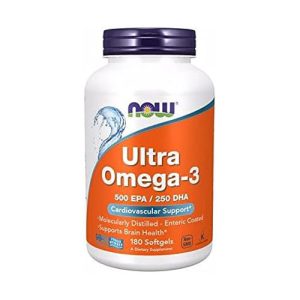 Omega-3s or fish oil — Omega-3 fatty acids, which are polyunsaturated fats found in fish oil, have been shown to have potential benefits for people with asthma. Here’s how Omega-3s may help in supporting asthma:
Omega-3s or fish oil — Omega-3 fatty acids, which are polyunsaturated fats found in fish oil, have been shown to have potential benefits for people with asthma. Here’s how Omega-3s may help in supporting asthma:
- Reducing Inflammation: Omega-3s have anti-inflammatory properties that can help reduce airway inflammation, which is a key feature of asthma. Inflammation in the airways can cause them to become swollen, narrow, and produce excessive mucus, making breathing difficult. By reducing inflammation, Omega-3s may help improve lung function and reduce asthma symptoms.
- Improving Lung Function: Some studies have found that Omega-3s may improve lung function in people with asthma. For example, a 2016 study published in the journal Nutrients found that supplementing with Omega-3s for three weeks improved lung function in adults with asthma.
- Enhancing Immune Function: Omega-3s can also help support a healthy immune system, which is important for people with asthma. People with asthma have a hyper-responsive immune system, which can trigger inflammation in the airways. By supporting a healthy immune system, Omega-3s may help reduce the risk of asthma attacks.
- Supporting Overall Health: Omega-3s are also important for overall health. They can help reduce the risk of heart disease, stroke, and other chronic conditions that may worsen asthma symptoms. By supporting overall health, Omega-3s may help reduce the severity of asthma symptoms and improve quality of life.
Here is the brand that I use: Now Omega-3s
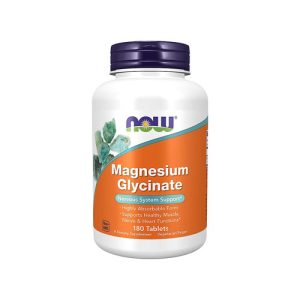 Magnesium is an essential mineral that plays an important role in various bodily functions, including supporting respiratory health. In particular, magnesium has been found to be beneficial in supporting asthma management.
Magnesium is an essential mineral that plays an important role in various bodily functions, including supporting respiratory health. In particular, magnesium has been found to be beneficial in supporting asthma management.
Asthma is a chronic respiratory condition characterized by inflammation and constriction of the airways, leading to difficulty in breathing. Studies have shown that magnesium can help in the management of asthma by relaxing the smooth muscles in the airways, which reduces broncho constriction and improves airflow.
In addition, magnesium has been found to have anti-inflammatory properties, which can help to reduce inflammation in the airways that contributes to asthma symptoms. This can lead to a reduction in the severity and frequency of asthma attacks.
Furthermore, magnesium can also help to improve lung function by increasing the delivery of oxygen to the cells and tissues of the body. This can help to reduce shortness of breath and improve overall respiratory function in individuals with asthma.
Overall, magnesium plays a crucial role in supporting respiratory health and may be particularly beneficial in the management of asthma. However, it’s important to note that magnesium should not be used as a substitute for standard asthma medications and treatment, and individuals with asthma should always consult with their healthcare provider before making any changes to their treatment plan.
Here is the Magnesium supplement that I recommend.
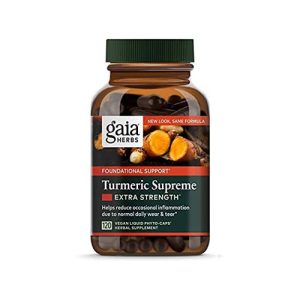 Turmeric — is a spice thats commonly used in traditional Indian cooking but it has been studied for its numerous health benefits, including asthma. Here are a benefits of turmeric on asthma:
Turmeric — is a spice thats commonly used in traditional Indian cooking but it has been studied for its numerous health benefits, including asthma. Here are a benefits of turmeric on asthma:
- Anti-inflammatory effects: Asthma is characterized by chronic inflammation of the airways. Curcumin, the active compound in turmeric, has shown anti-inflammatory effects in several studies. It may help reduce inflammation in the airways, potentially improving asthma symptoms.
- Antioxidant activity: Oxidative stress plays a role in the development and progression of asthma. Turmeric contains antioxidants that can help combat oxidative stress, potentially reducing airway damage and inflammation.
- Airway relaxation: Some studies have suggested that turmeric may have a bronchodilatory effect, meaning it could help relax the muscles of the airways, allowing for improved airflow and reduced asthma symptoms.
Here are a few studies that explore the effects of turmeric on asthma:
Chaudhary et al. (2018) – This study investigated the effects of curcumin on airway inflammation and remodeling in a mouse model of allergic asthma. The researchers found that curcumin supplementation reduced inflammation and airway remodeling, suggesting its potential as a therapeutic agent. (https://www.ncbi.nlm.nih.gov/pubmed/29511489)
Jat et al. (2020) – In this clinical trial, children with persistent asthma were given curcumin capsules for eight weeks. The study observed improvements in lung function, reduced asthma exacerbations, and decreased need for rescue medications. However, it’s worth noting that this study had a small sample size. (https://www.ncbi.nlm.nih.gov/pubmed/32101016)
Shakeri et al. (2020) – This review article summarizes the existing preclinical and clinical evidence on the potential therapeutic effects of curcumin in asthma. The authors discuss the anti-inflammatory, antioxidant, and bronchodilatory properties of curcumin and suggest its potential as an adjunct therapy for asthma. (https://www.ncbi.nlm.nih.gov/pubmed/33008172)
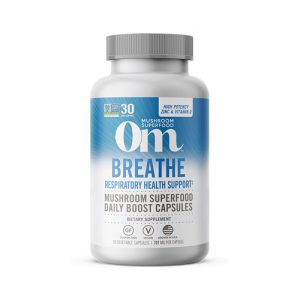 Reishi and Cordycep Mushrooms for respiratory health — here are the benefits of reishi and cordycep mushrooms:
Reishi and Cordycep Mushrooms for respiratory health — here are the benefits of reishi and cordycep mushrooms:
Reishi Mushroom:
- Immune system support: Reishi mushrooms contain bioactive compounds that may help modulate the immune system, potentially reducing inflammation and enhancing immune function.
- Anti-inflammatory effects: Some studies suggest that Reishi mushrooms may have anti-inflammatory properties, which could be beneficial for asthma by reducing airway inflammation.
- Antioxidant activity: Reishi mushrooms are rich in antioxidants that help combat oxidative stress and free radicals in the body, which may contribute to overall respiratory health.
- Respiratory health support: Reishi mushrooms have been traditionally used to support respiratory function, although more research is needed to confirm their effectiveness for specific respiratory conditions like asthma.
Cordyceps Mushroom:
- Oxygen utilization: Cordyceps mushrooms have been traditionally used to support improved oxygen uptake and utilization in the body, potentially enhancing overall respiratory function.
- Anti-inflammatory properties: Some studies suggest that Cordyceps mushrooms possess anti-inflammatory properties, which may help reduce airway inflammation in respiratory conditions like asthma.
- Energy and endurance: Cordyceps mushrooms have been used in traditional medicine to enhance stamina, energy, and exercise performance, which could be beneficial for individuals with respiratory conditions who may experience exercise limitations.
- Immune system modulation: Cordyceps mushrooms may help modulate the immune system, potentially supporting respiratory health by reducing inflammation and enhancing immune function.
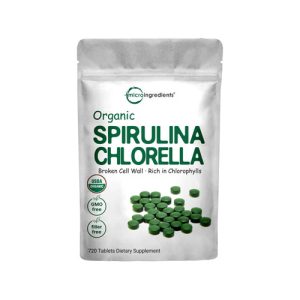 Spirulina and chlorella are both nutrient-rich algae that offer benefits for overall health. Here are the benefits for asthma:
Spirulina and chlorella are both nutrient-rich algae that offer benefits for overall health. Here are the benefits for asthma:
- Anti-inflammatory properties: Both spirulina and chlorella contain compounds that have shown anti-inflammatory effects in various studies. Chronic inflammation in the airways is a hallmark of asthma, and reducing inflammation may help alleviate symptoms.
- Antioxidant activity: Spirulina and chlorella are rich in antioxidants, which can help combat oxidative stress and reduce inflammation. Asthma involves oxidative damage, and the antioxidant properties of these algae may help mitigate such damage and support lung health.
- Immune system support: Both spirulina and chlorella have been found to modulate the immune system. Asthma involves an overactive immune response, and regulating immune activity may help manage symptoms. However, more research is needed to determine the specific effects on asthma.
- Nutritional support: Spirulina and chlorella are highly nutritious and provide a wide range of vitamins, minerals, and proteins. Asthma and certain asthma medications can affect nutrient status, and incorporating these algae into the diet may help support overall health and potentially improve asthma management.
- Potential respiratory health benefits: Some preliminary studies suggest that spirulina and chlorella may have positive effects on lung function and respiratory health. They have been associated with improvements in exercise performance, lung capacity, and respiratory symptoms. However, more research is needed to establish their specific benefits for asthma.
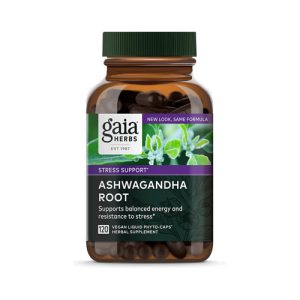 Ashwaganda — has a wide-range of benefits, but Ive added it here because in order for you to be asthma free, you need to be relaxed and stress-free. Ashwaganda helps with that. Here are the other benefits of ashwaganda:
Ashwaganda — has a wide-range of benefits, but Ive added it here because in order for you to be asthma free, you need to be relaxed and stress-free. Ashwaganda helps with that. Here are the other benefits of ashwaganda:
- Anti-inflammatory properties: Ashwagandha has been shown to possess anti-inflammatory properties. Asthma is characterized by airway inflammation, so reducing inflammation in the airways may potentially help alleviate asthma symptoms. However, more research is needed to determine the specific impact of Ashwagandha on asthma-related inflammation.
- Stress reduction: Ashwagandha is considered an adaptogen, which means it may help the body cope with stress. Stress can trigger or worsen asthma symptoms in some individuals. By promoting relaxation and reducing stress levels, Ashwagandha may indirectly contribute to better asthma management.
- Immune system modulation: Ashwagandha has been suggested to have immunomodulatory effects, which means it may help regulate the immune system. Asthma involves an abnormal immune response, leading to airway inflammation and constriction. Modulating the immune system could potentially have a positive impact on asthma symptoms.
- Antioxidant properties: Ashwagandha contains antioxidant compounds that help protect cells from damage caused by free radicals. This antioxidant activity may provide general benefits for respiratory health, but more research is needed to establish a direct link between Ashwagandha and asthma.
I hope this guide to being asthma-free is helpful. Please note that Im not a medical doctor and this is based on my personal experience — please make sure you work closely with your medical professional when you decide to go on this journey. For any questions or clarifications, please don’t hesitate to contact me.

